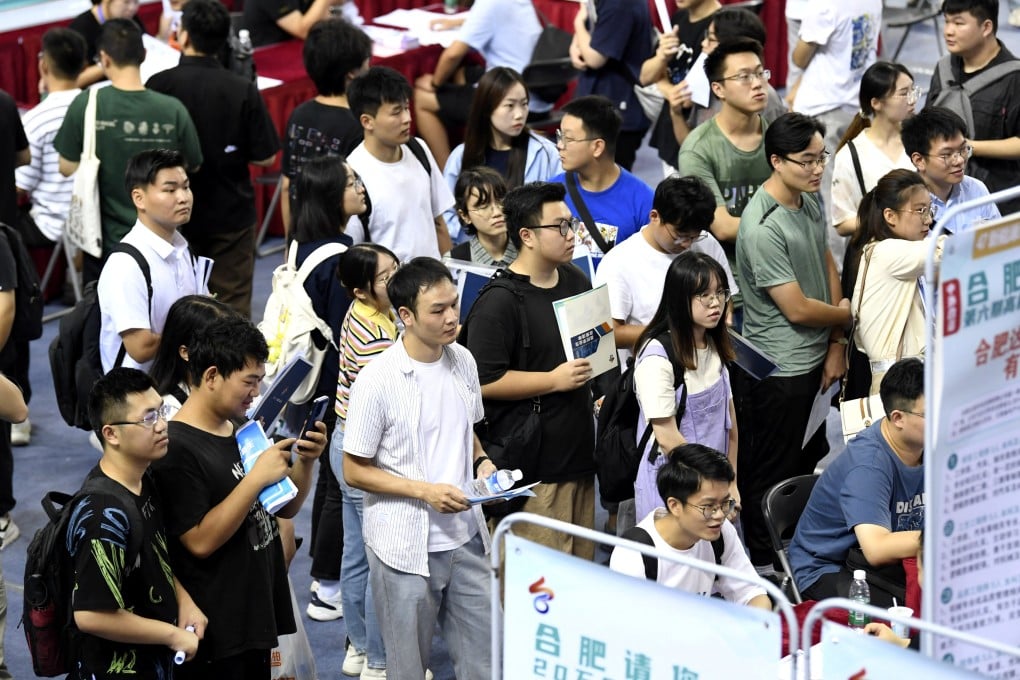Is China’s ‘slow employment’ surge just another way of saying more graduates are ‘lying flat’?
- In Shanghai, more young adults are showing a lack of urgency in securing work after earning a university degree, and the ‘problematic’ trend is draining parents’ resources
- Central leadership sometimes uses controversial terms, including ‘flexible employment’ and ‘full-time children’ when discussing China’s job market

Don’t call them “unemployed”. They’re just a bit “slow”.
“Slow employment”, which reflects a lack of urgency in finding a job after graduation, often with intentions to pursue further education, has more than doubled in Shanghai over the past eight years, rising from 15.9 per cent when the term was first used in 2015 to 38 per cent this year.
The findings were released this month by the Shanghai branch of the National Bureau of Statistics (NBS) after more than 4,000 university graduates were polled in the economic hub in April – the height of the spring hiring season for those who wanted to enter the job market right after graduation.
Across China, dire work prospects in a faltering economy have seen job offers dwindle, and the nation’s monthly jobless rate among those aged 16-24 surpassed 21 per cent before authorities decided to withhold the July rate, citing the need for a recalibration.